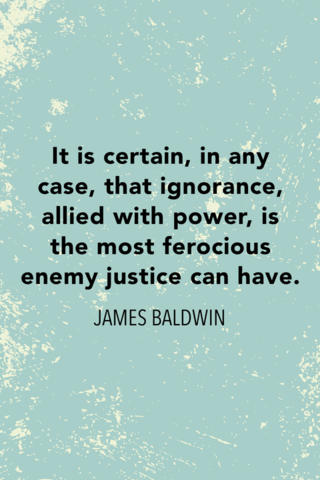Health
The Problematic Policing of Black Bodies and Minds
What can be done to change how police approach Black mental health crises?
Posted February 26, 2021
It's Black History Month. Rife with discussions, panels, and specials on Black joy and pain, February is often a time for many to reflect on the history of our people and what strides we as a collective society need to make to move forward.
Which is perhaps why the back-to-back news involving Elijah McClain and Daniel Prude during this final week of Black History Month and after such a challenging year of racial animus and potential hope stung so much to so many. An independent report on McClain, who died after a violent encounter with police and paramedics in Aurora, CO, found that there was no justification in stopping him. The next day, the case of Prude ended in a jury bringing no charges to the police officers who hooded, chokeheld, and otherwise aggressively detained him while being informed he was having a mental health crisis.

Although McClain and Prude are just the latest in a series of police killings of those with varying mental health needs, there remained a glimmering promise that the changing societal beliefs about the Black Lives Matter movement may help to reshape inequitable systems, particularly the justice system.
Various communities had been calling for the defunding of the police since George Floyd was violently murdered in May 2020, yet this call is not new. Police have been negatively impacting communities of color for generations, whether through aggressive tactics, disparately enforced laws, or a subsequent terror as a result of these policies and practices. Black adults and children are more likely to experience depressive, anxious, and traumatic symptoms in response to police presence or practices. And, given that so many instances are now being captured on camera, those experiences appear more frequent and widespread for many Black viewers.
The irony, though, that the same system which exaggerates mental health problems is the same one that kills those with mental health problems at a greater rate should not be lost.
At this point in the post, you are probably wondering what we can do about this incredibly troubling pattern of harm both towards those with mental health problems and contributing towards mental health problems in Black and Brown populations.
To wit, I have no recommendations for you.
What I can provide—as a Black psychologist in a school of public health—is the tool to evaluate the factors aiding this inequality. In addition to these well-established points underscoring the failures of crisis intervention teams, it is critical to be mindful of the following with respect to policing:
- A substance cannot be reformed into something different from its original ingredients. If you think you're going to get croissants from PlayDoh, we've got a problem on our hands. Likewise, if we expect that a great deal of effort towards reform can reshape the grim history of police forces, we too will continue to deal with problems in this realm. White brotherhood, power, ammunition, and immunity are the ingredients of the original recipe. To truly have a new form, we have to scrap the dough and find a new mix, as some communities have tried to do. And yet, even when the kitchen is burning, we rely on the same recipes that have contributed to considerable inequities in policing strategies for Black and Brown communities.
- Deescalation cannot happen if the targets are dehumanized. It's no secret that Black Americans were not considered to be a "whole" human historically, but that those beliefs have not waned in modern times is an important element in how police interact with Black and Brown citizens to this day. Particularly in the case of Elijah McClain, the overestimation of his weight by 50 pounds directly contributed to his cardiac arrest in the days following his police encounter. Several police officers who placed the young man in a chokehold, paramedic administration of ketamine—a drug used because of his perceived “mania”—by over a third the recommended dose, and the lack of response to his pain and suffering all follow the pattern of seeing Black males as older, bigger, and more threatening than they actually are. (That he was only "armed" with the iced tea he went to the store for should echo this pattern.)
- Police are not mental health providers. People from varying occupations are asked to provide trauma-informed care, even if they are not trained to do it. And yet the tools provided to police to engage with citizens, namely, guns, tasers, and bias, typically serve to only escalate the trauma, as I discussed here with Bianna Golodryga on CNN.
We are asking police to go beyond their training and their impulse, which, from a social behavioral standpoint, will likely never result in the outcomes we desire. If we want compassionate care from a trained individual, particularly when a citizen is experiencing a mental health concern, we should be calling on people specifically trained in mental healthcare, rather than a police officer.

One thing that became acutely clear from the summer of 2020 was that many people said they were ready to act. Yet when given the opportunity in 2021 to indict the police officers responsible for the homicide of Daniel Prude, jurors did not. If change is not possible within the greater society, why would the justice system have to adapt?
Armed with a more informed awareness of issues impacting these disparities, we need to fight for a new system in which community-based providers see their fellow humans as such and do so with a lens of trauma-informed care. My own prayer is that we will no longer need to memorialize our loved ones in hashtags and that our science will help to create a change in these disparities perpetrated by police. We must more critically evaluate the role of the greater society in the improved wellness of Black people not only during February but every month of the year so that Elijah and Daniel will truly see justice.


